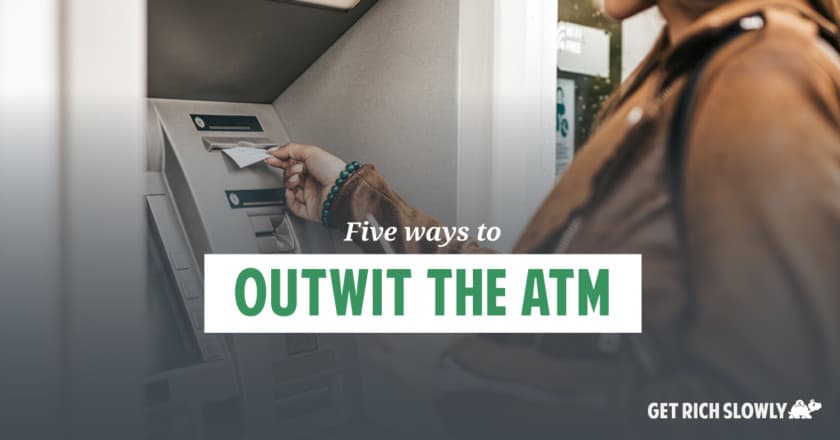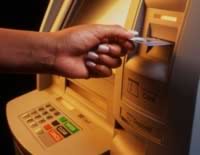Frugal back-to-school shopping
According to the National Retail Federation, we'll spend $68.8 billion outfitting our students for school this year. Yes, I said $68.8 billion. Sounds like a lot of money, right?
More than 80% of the nearly 8,700 people surveyed say that the still-crappy economy has affected the way they'll shop for school supplies. For example:
- 30.7% will comparison-shop online
- 38% will buy store-brand or generic products
- 44.6% will spend less overall
Good ideas all, but I'd add another tactic: Start early.
How to spend money (even if you think you shouldn’t)
Last year the zipper on my winter coat broke. Not before time, mind you; I'd had it so long that I couldn't remember exactly when I bought it. My best guess is 25 years.
Gut reaction: Oh no! I can't afford a new coat. But of course I could. I have a regular writing gig. Yet I actually thought about getting a seamstress to put in a new zipper.
Folks, this coat wasn't classy even when it was new way back in the mid-1980s. It was a navy blue, butt-length cloth coat with a hood, bought from the clearance rack for about $40. After a couple of dozen years of wear it was fraying badly, especially around the cuffs and pockets.
10 ways to build a gift closet that’s both deep and cheap
The holidays are about six months away. Why wait until the last minute to shop? Answer: You shouldn't. And you won't have to if you have a decently stocked gift closet. Some people I know keep their eyes open starting on Dec. 26 and are finished by mid-summer.
It's more than just the December holidays, though. A small selection of “evergreen” gifts (non-perishable, non-trendy) means you're prepared for any birthday, anniversary or new baby that comes along.
Building your gift closet doesn't have to cost much. I always trot out the example of the puzzle depicting the Sistine Chapel ceiling, the perfect gift for a jigsaw-loving relative. Still shrink-wrapped when I found it on half-price day at a thrift shop, it set me back a whopping 35 cents.
A penny saved is a penny spurned? What to do with pockets full of change
I regularly empty the change from my wallet. Pennies, nickels and dimes go into a pink piggy bank. Quarters go into “Mr. Nest Egg,” a bank shaped like Humpty Dumpty.
The quarters are for when I finally get around to washing my jeans. The rest of the change gets wrapped every so often and deposited into my “Home” account, where I'm saving for a down payment.
I'm one of the lucky ones: My bank accepts rolled coins. Not every financial institution accepts large quantities of coins — and some of the ones that do will charge a fee to count them. (Ever notice that they don't charge you to count the ones, fives, tens and twenties you bring in for deposit?) In this economy, you may find yourself prospecting under couch cushions for bus fare or a quart of milk. And since squirreling away spare change is a relatively painless way to build an emergency fund, it's a shame that some banks and credit unions discourage the practice.
Five ways to outwit the ATM

 Automated teller machines are from the devil, and debit cards are Satan's imps.
Automated teller machines are from the devil, and debit cards are Satan's imps.
Sure, it's great to be able to get cash whenever you want. The problem is, well, you can get cash whenever you want. Not only do you get hooked on instant access, you may not use the money wisely once it's in your hand.
Notice how $20 bills have become the coin of the realm, as it were? (I've even seen little kids use them to pay for candy bars, which is just scary.) Once that $20 is broken, what are the chances that you'll take pains not to waste the rest?
Use a financial fire drill to prepare for the worst BEFORE it happens
Hey, federal employees: How many of you were you watching the Countdown to Shutdown clock and wondering how you'd cope if salaries were delayed by even a few days?
The time to figure out how you would have managed was before the crisis loomed. The same goes for any non-government workers living paycheck to paycheck. What if something happened to delay or (heaven forbid) curtail those checks?
You can't predict illness, layoff or your employer going out of business. But you can prepare for these contingencies with a financial fire drill, i.e., getting a clear idea of baseline expenses and creating a plan to cover them with available funds.
Emergency preparedness on a shoestring
Images of devastation emerged after the Japanese earthquake and tsunami. We watched water sweep away vehicles and houses; we saw stunned men and weeping women in the ruins. But we also heard about survivors whose homes weren't flattened or inundated, people who subsisted on stockpiled food and water while waiting for help. Living on the “Ring of Fire” means temblors and tidal waves are a fact of life — and so is disaster preparedness.
We need to be prepared, too. The Department of Homeland Security's Ready America program says we should be able to sustain ourselves for at least three days after an emergency, whether that's a hundred-year storm or a civil insurrection.
How ready are you?
Right now, before anything bad happens, is the time to build your emergency kit — and you can do it on a budget. In fact, you probably already have some (or a lot) of what you need.
Fight rising prices by building your own food bank pantry
According to the U.S. Department of Agriculture, food prices are expected to rise as much as 5.5% in 2011. Those prices aren't likely to go back down. So why not invest in food futures, i.e., your own pantry? Put it this way: If you have an emergency fund in the bank, why not have food in the bank?
Liz Pulliam Weston calls a full cupboard “the emergency fund you can eat.” Having plenty of staples on hand makes sense for several reasons:
- You're locked in at the price you paid, which ideally will be the sale price (more on that later).
- There's always something to fix for supper, which can mean less temptation to order in. You can also pack your own lunch.
- If you get furloughed or laid off, you can eat from your cupboards.
- Getting the best deals means your food dollars go further.
- Having the ingredients to throw together a quick meal means less temptation to order in.
- A deep pantry means less need to run to the store to get just one or two items. (Can you really get out of the store with just a six-ounce can of tomato paste?) This in turn means less wear and tear on the car and less gas used.
- If times get tight, you can eat from your cupboard.

Cheap Tupperware alternatives: Frugal food storage containers
To hear the storage industry tell it, every kitchen needs plastic containers in a dozen sizes. You need specialized storage, too: triangles for wedges of pie, say, or deviled-egg sarcophagi with little divots to cradle each demi-oeuf. Oh, and lots of foil, waxed paper, and plastic wrap and bags to hold sandwiches and snacks or cover bowls of leftovers.
My boxes of foil and plastic wrap last me up to a couple of years each. And while I'll cop to owning a few Tupperware and Rubbermaid pieces, it's all hand-me-down stuff — and note that I said a few. I don't need much, and I don't use much commercial wrapping, because there are plenty of other ways to store food.
Use What You've Got
Don't automatically assume you need special food-storage containers. Why not just put leftovers in a bowl with a saucer or bread-and-butter plate on top? If it fits snugly, it's no different than aluminum foil or a plastic lid. (What? You thought that “burping” a Tupperware container got all the air out?)
<Getting paid to tell lies: Mystery Shopping as a frugal hack
Two persistent rumors about mystery shopping:
- It's a scam.
- It's not a scam — and you can get rich doing it!
Allow me to set these rumors to rest:
- Mystery shopping is not a scam. (Well, sometimes it is. More on that later.)
- You won't get rich, but you can make a little extra — plus get free stuff.
- You should never pay for mystery shopping info.
My daughter Abby has been doing “shops” for a decade, and I've done them off and on for six years. We've gotten free steaks, hotel rooms, oil changes, booze, pet food, lodging, nights at a casino, rental cars, and molten chocolate cake.
Become A Money Boss And Join 15,000 Others
Subscribe to the GRS Insider (FREE) and we’ll give you a copy of the Money Boss Manifesto (also FREE)

